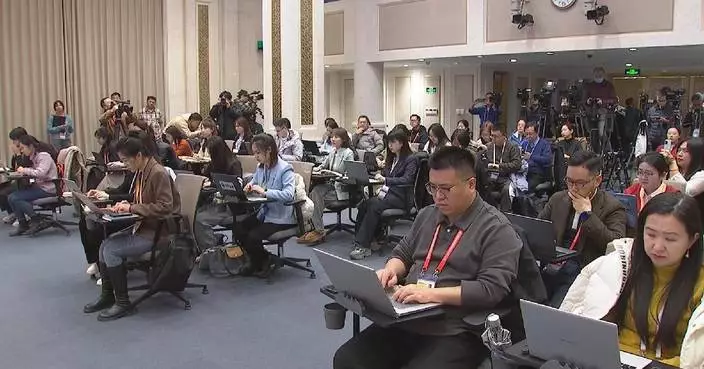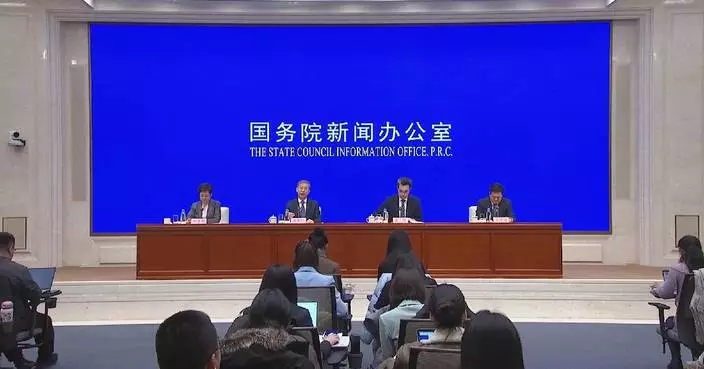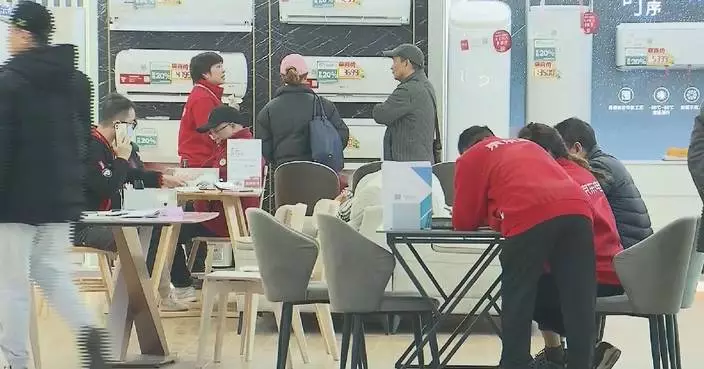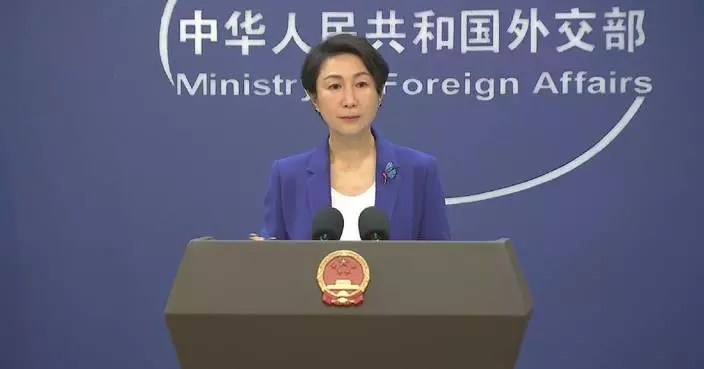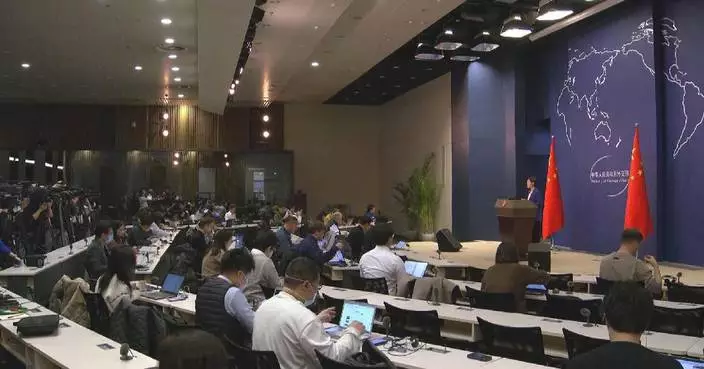The Ha Mpiti-Sehlabathebe Road, one of the key projects of China-Lesotho cooperation under the Belt and Road Initiative, was handed over to the Lesotho government on Friday upon completion of its construction.
While addressing the handover ceremony in the country's Qacha's Nek District, Lesotho Prime Minister Sam Matekane said that the people of Lesotho have long awaited completion of construction of the road, which will improve local infrastructure, making travel more convenient for the people and helping Lesotho attract more tourists.
"This vital infrastructure project will bring about positive changes to the lives of Lesotho in numerous ways. The improved road will significantly enhance connectivity within the region, facilitating the movement of people and goods. This will not only boost economic activity but also open new opportunities for education, health care and social interaction for the communities it connects. We are truly appreciative of China's continued support for the Lesotho's development endeavors, which shall revise the strong bond of friendship between our two nations," said the prime minister.
Lesotho officials have highly commented on the quality of the road, saying that when Lesotho faced long-term development challenges, the Chinese government and people stood firmly with them, making China a truly trustworthy friend of Lesotho.
Delivering a speech on the same occasion, Acting Chinese Ambassador to Lesotho Lyu Liangzhong said that the Ha Mpiti-Sehlabathebe Road was built with concessional loans provided by the Chinese government within the framework of the Belt and Road Initiative. The construction unit spent five years upgrading the previous gravel road to an asphalt road. The successful execution of this project has provided approximately 1,500 jobs and trained over 300 local technicians, bearing witness to the friendship between China and Lesotho.
The project manager said the 91.48-kilometer-long road will greatly improve the region's infrastructure, and it is expected to reduce the travel time on the entire route from four hours to 1.5 hours.

China-funded road project handed over in Lesotho

China-funded road project handed over in Lesotho
China remains resolute in its pursuit of the dual-carbon goals of carbon peaking and carbon neutrality, positioning the green transition as a core driver of high-quality development, according to Zhao Chenxin, vice chairman of the National Development and Reform Commission.
Speaking at a press conference on Friday in Beijing, Zhao outlined significant achievements in 2024 and provided a roadmap for 2025, which includes advancing carbon reduction initiatives, strengthening green industries, and enhancing ecological protection efforts.
"We've rolled out guidelines for accelerating the green transformation of our economy and society and advancing nearly 200 specific initiatives. We've also released a catalog of industries supporting this transition, promoting 112 green technologies and 47 advanced low-carbon projects. We've developed a two-year action plan for energy conservation and carbon reduction, along with seven sector-specific plans, achieving significant progress. It is predicted that we reduced energy consumption intensity by over 3 percent last year, surpassing our targets. Additionally, we’ve implemented 194 national standards in the 'dual-carbon' field and supporting local governments in establishing carbon emission budget systems," Zhao said.
Zhao also emphasized that efforts in resource conservation and ecological protection continued to gain momentum.
"We've rolled out policies on promoting food conservation, reducing food waste, developing water-saving industries, and encouraging waste recycling. More than 60 billion yuan (about 8.2 billion U.S. dollars) of government funding has been allocated to enhance environmental infrastructure and support major ecosystem protection and restoration projects, including the 'Three-North Shelterbelt Forest Program'. Additionally, we've formulated the Ecological Protection Compensation Regulations, and increased the annual funding of central and local governments to nearly 300 billion yuan (over 41 billion U.S. dollars)," Zhao added.
In addition, significant attention was given to programs aimed at large-scale equipment upgrades and consumer goods trade-ins.
"In 2024, we allocated 300 billion yuan in ultra-long-term special treasury bonds to support large-scale equipment upgrades and consumer goods trade-in programs. In the first 11 months of the year, national investment in equipment and tool procurement rose 15.8 percent year on year, contributing 65.3 percent to overall investment growth. Through the trade-in program, over 60 percent of consumers chose new energy vehicles, driving the domestic penetration rate of new energy passenger cars to over 50 percent for six consecutive months," Zhao explained.
Looking ahead, China will mark two major milestones in 2025 - the 20th anniversary of Chinese President Xi Jinping introducing the concept that 'lucid waters and lush mountains are invaluable assets,' and the fifth year since China announced its dual-carbon goals.
Zhao said that the commission will continue to work with relevant stakeholders and prioritize these efforts by advancing carbon reduction, pollution control, green growth, and ecological expansion, while accelerating the comprehensive green transformation of the economy and society.
"We will actively plan the carbon peaking initiatives for the 15th Five-Year Plan (2026-2030), develop integrated evaluation and assessment methods, advance national carbon peaking pilot projects, and accelerate the building of zero-carbon industrial parks. We will further strengthen fiscal, financial, investment, and pricing policies and standards to foster the healthy development of green and low-carbon industries," Zhao stated.
"We will continue to enhance environmental infrastructure, implement major ecosystem protection and restoration projects, and explore mechanisms to realize the value of ecological products. We will work to achieve greater results in promoting the programs of large-scale equipment upgrades and consumer goods trade-in, so as to increase funding, broaden coverage, optimize the implementation of the policies, and amplify their leverage effects in 2025," Zhao concluded.
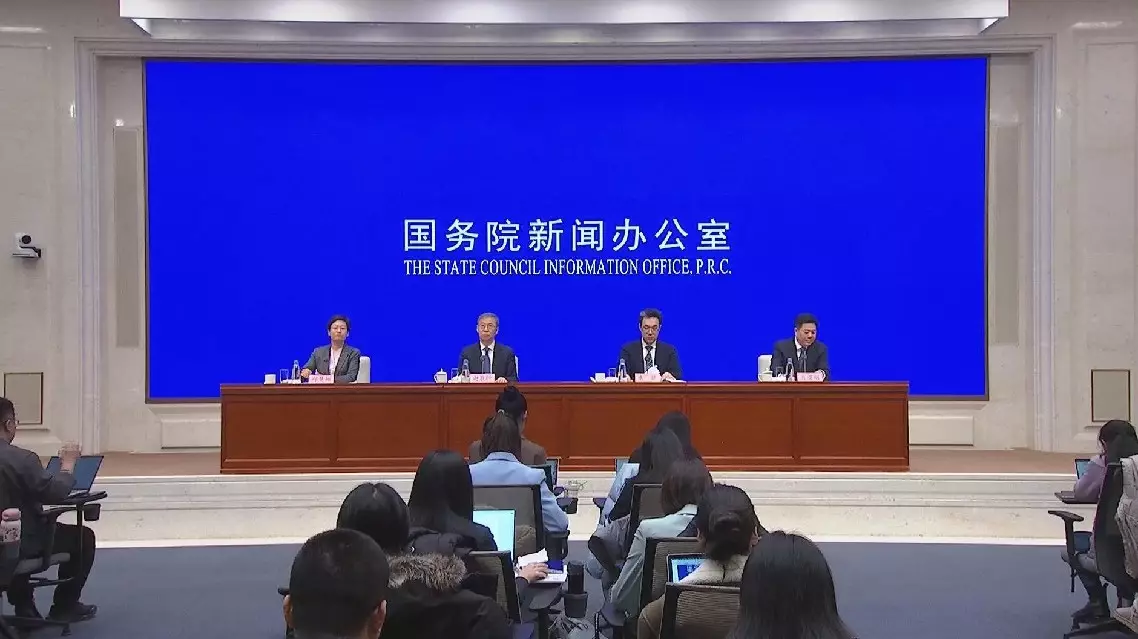
China reaffirms commitment to green transition and dual-carbon goals: NDRC







